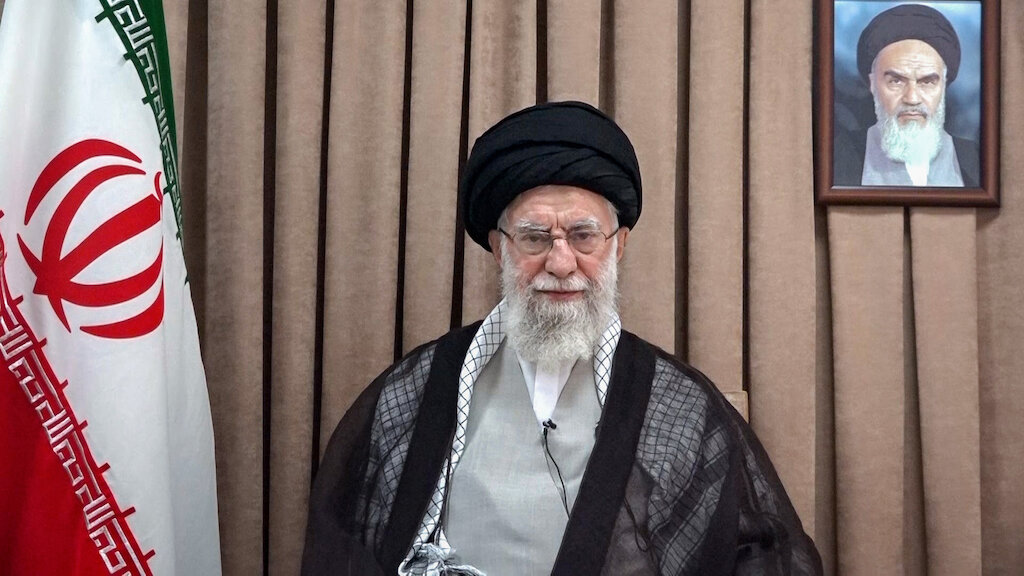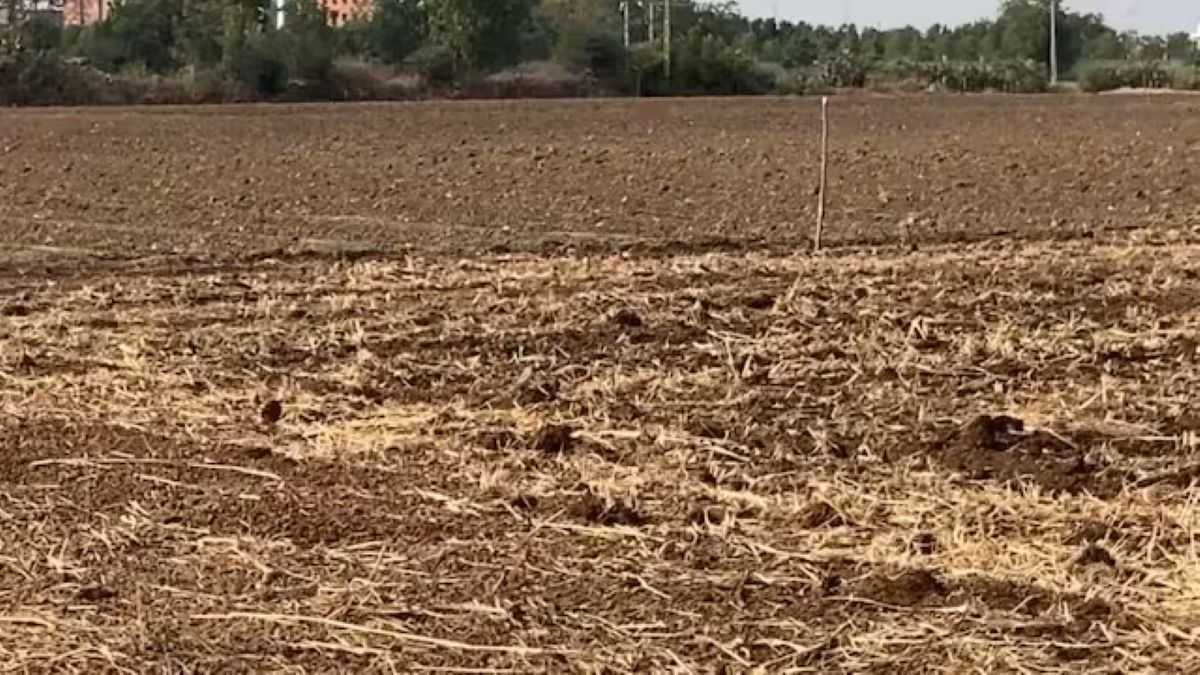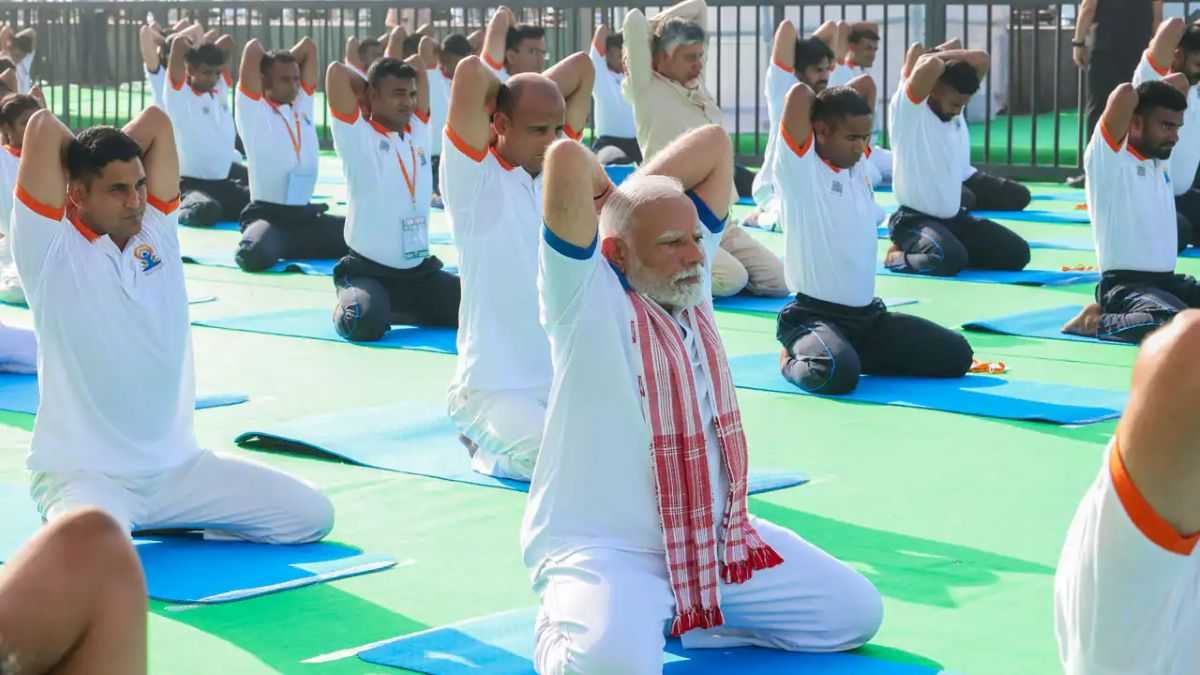
Tehran’s Bold Stance: “The Zionist enemy is being punished… right now”
On June 21, 2025, Iran’s Supreme Leader Ayatollah Ali Khamenei publicly proclaimed on his official X account: “The Zionist enemy is being punished. It is being punished right now.” This striking declaration follows the deadliest escalation between Israel and Iran in recent memory.
The Zionist enemy is being punished. It is being punished right now.
— Khamenei.ir (@khamenei_ir) June 20, 2025
Source: (@khamenei_ir)
Khamenei accused Israel of moral collapse and human rights violations, highlighting what he calls “genocide” and “massive civilian casualties in Gaza and Lebanon” — crimes he alleges are supported by the U.S. . He emphasized that Iran is merely responding to “terrorist Zionist regime” threats and barred mercy for its actions .
Iran Launches Missile Strikes as Civilian Targets Are Hit
Over the past 72 hours, Iran launched a barrage of Sejjil and Fateh missiles targeting Israel’s infrastructure. One of the most devastating hits was reported at Soroka Medical Center in Beersheba, where at least 70 people were injured and a chemical unit was critically damaged. This strike has drawn international condemnation, with many labeling it a violation of the Geneva Convention.
These attacks are seen as a response to Israel’s alleged involvement in the assassination of senior IRGC officials earlier this month. Iran has vowed to continue retaliating, stating that this is just the beginning of what it calls the “retribution phase.”
Source: Times News
Israel Strikes Back: Targeting Iran’s Nuclear and Missile Sites
In retaliation, the Israeli Air Force (IAF) launched a series of precision airstrikes against high-value military and nuclear infrastructure across Iran. Strikes reportedly hit Arak’s heavy water plant, Natanz enrichment facility, and IRGC command centers, resulting in hundreds of casualties, including top Iranian commanders.
The Israeli Defense Forces (IDF) revealed that they destroyed 30+ missile launchers and neutralized at least two drone control centers. Intelligence sources suggest Mossad operatives carried out covert sabotage on Iran’s internal radar systems, further crippling their defense capabilities.
Civilian Suffering Deepens: Deaths, Displacement & Internet Blackouts
The human toll is rising fast. In Iran, reports suggest over 650 deaths, including more than 260 civilians. Thousands have been injured, many critically. In Israel, over 240 civilians and soldiers have been wounded due to direct missile hits in Tel Aviv, Haifa, and Beersheba.
In Tehran alone, more than 100,000 residents fled to the northern provinces, fearing further bombings. Local news outlets report widespread panic, fuel shortages, and disrupted supply chains. Iran’s partial internet blackout has only increased the sense of fear and isolation among citizens.
Global Diplomacy: Geneva Talks & U.S. Strategic Pause
In response to the rapidly unfolding crisis, foreign ministers from France, Germany, the UK, and EU foreign policy chief Josep Borrell have convened emergency talks in Geneva. The goal is to propose a ceasefire deal, reduce tensions, and create space for future nuclear negotiations.
Meanwhile, Iran is reportedly engaging with Gulf Arab nations—including Qatar, Oman, and Saudi Arabia—to pressure the United States into brokering a truce. According to Reuters, Tehran has asked these nations to convince President Donald Trump to enforce a short-term ceasefire in exchange for delaying uranium enrichment.
Khamenei Under Pressure: Escalation or Diplomacy?
At 86, Khamenei finds himself at a turning point. With mounting casualties, internal protests, and cyber sabotage disrupting the Iranian economy, he must decide whether to push ahead with open war or consider the diplomatic off-ramp being offered in Geneva.
Hardline factions within the IRGC are demanding continued retaliation, yet Iranian civilians—especially the displaced and grieving—are demanding peace. Observers suggest that Khamenei may be risking his own legacy if further escalation leads to Iran’s political and economic isolation.
Israel’s Red Lines: Targeting Hezbollah and Strategic Reserves
Israeli leaders, meanwhile, have issued stark warnings to Hezbollah in Lebanon, warning against opening a second front. Israeli Intelligence Minister Gila Gamliel stated, “We will consider an attack on us from Lebanon as a declaration of all-out war.”
Additionally, Israel is believed to be preparing Operation Iron Lance, which would target Iranian arms routes in Syria and Iraq if the missile exchanges continue. This has prompted the U.S. to place carrier strike groups in the Persian Gulf and raise its DEFCON alert level.
Conclusion
This conflict has transitioned from a shadow war into a full-blown confrontation with global implications. As Ayatollah Khamenei vows further punishment and Israel intensifies counterattacks, the chance for de-escalation rests on the thin hope of diplomacy.
World leaders must now decide: pressure both parties toward ceasefire, or risk a regional war involving Lebanon, Syria, and potentially Gulf states. The next 72 hours will be critical.
Read Also: Trump Weighs Iran Strike Without Congressional Approval — Flouting War Powers?





